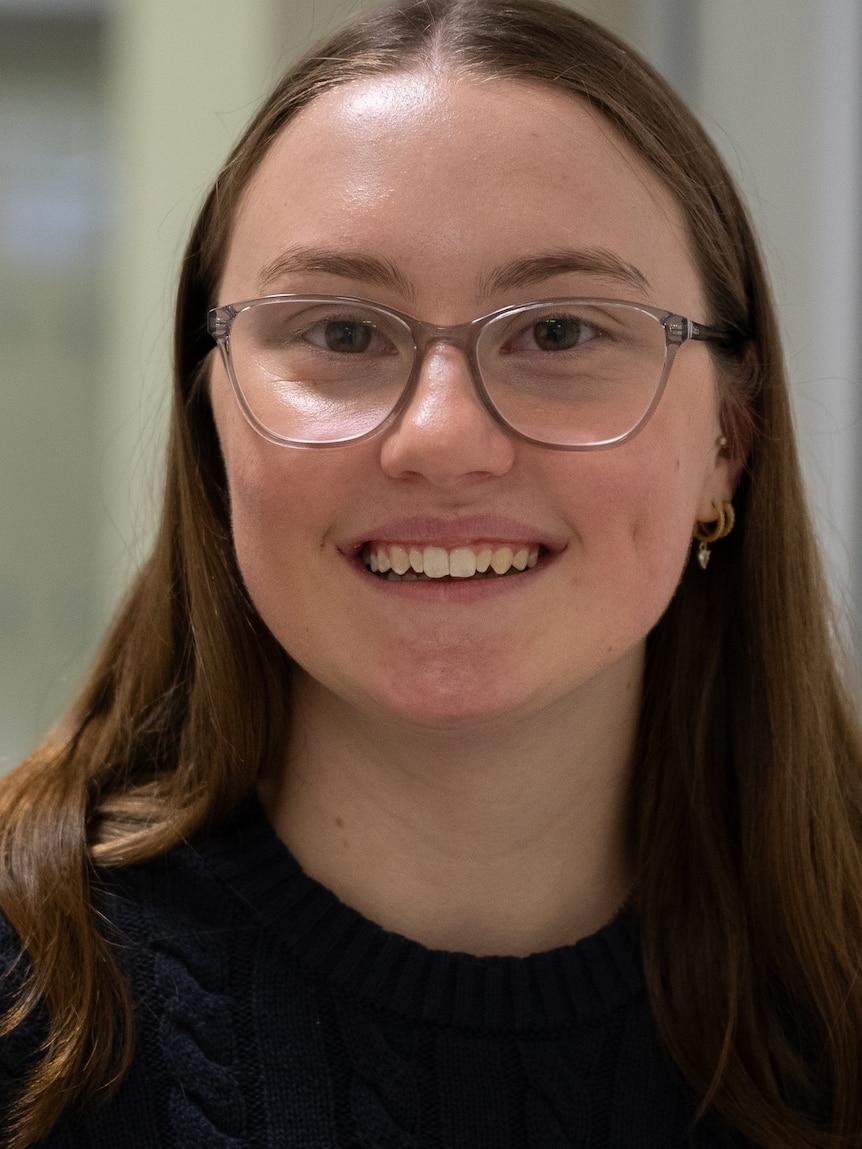For the past three years, Adelaide teenager Kate Smith has battled constant pain that has impacted “every single aspect” of her life.
A panic attack left behind a headache which has never really gone away.
“It was absolutely terrifying,” she said.
“We got brain scans and everything, and there was a time where I thought ‘do I have a brain tumour?’, ‘am I going to die?’, ‘what’s going on?’
“You go one week, and then a fortnight, then a month, and you think, ‘when is this going to stop?'”
Kate, 17, is just one of more than 3 million Australians currently living with chronic pain, a condition she had no idea about until she was diagnosed by her doctor.
She said it came as a huge shock and left her riddled with fear.
“When I think of year 9 Kate, when it first started, I don’t really remember being at school at all – I just remember sitting in my room feeling miserable,” she said.
“It was just so impossible to get to school, try and complete assignments and learn content when I was so unfamiliar with this pain, and I had no idea what was going on.
“I thought I was completely alone; I had no friends or anyone I knew who had chronic pain.”
Now, Kate has learned to live with her constant headache and wants to use her experience to help others.
Hospital campaign aims to help chronic pain sufferers
She has joined forces with the Women’s and Children’s Hospital (WCH) to help other young people through their own chronic pain journey.
“Clearly there were, and are, people around me who do live with chronic pain … so raising awareness is important because it is so easy to feel super isolated and alone when that isn’t the case at all,” she said.
Kate and her mum Tracy, along with other families, have shared their stories in a new video campaign which hopes to provide support strategies to young South Australians experiencing chronic pain to ensure they can continue their education.
Service data from the WCH indicates young South Australians experiencing chronic pain have been missing an average of 5.4 days of school in a fortnight.
WCH paediatric chronic pain service lead Dr Nicki Ferencz said the videos deliver a “powerful” message which provides families, clinicians, and teachers with ways of managing chronic pain.
“The more we can improve those conversations so we can put practical strategies in place to help children move, find support and get better, that’s what we need to do,” she said.
Doctors say chronic pain can ‘pop up’ from anything
Dr Ferencz said despite research showing chronic pain was a significant issue for young people and their health, there was often a lack of coordinated care provisions available to them.
“Chronic pain can pop up for many reasons – it can come because you’ve had an injury, have a chronic health condition, or it can actually happen out of the blue – and it hangs around,” she said.
“For children going through their developmental process, where they are having to navigate school, navigate developing their relationships and who they are, that can be incredibly challenging.
“Even talking about having chronic pain, it is hard for them to find the words to describe what is occurring and what to do about that.”
Tracy said raising awareness and shining a spotlight on an often “invisible” condition was important to them after their own experiences.
“Every day for the last three years, people have been looking at her – and she masks it well like many kids – and they don’t know she has chronic pain,” she said.
“But if she had a really bad day, you wouldn’t see her because she’s in her bedroom having a sleep.”
Kate’s doctors are hopeful she might one day wake up without a headache, but in the meantime, she has been determined not to let it get in the way of completing year 12.
Tracy said her daughter has accepted that this might be her life, which has been an important part in her recovery during the past three years.
“Having said that, if she wakes up tomorrow morning and tells me her headache is gone, we’re going to throw a really big party,” she said.




